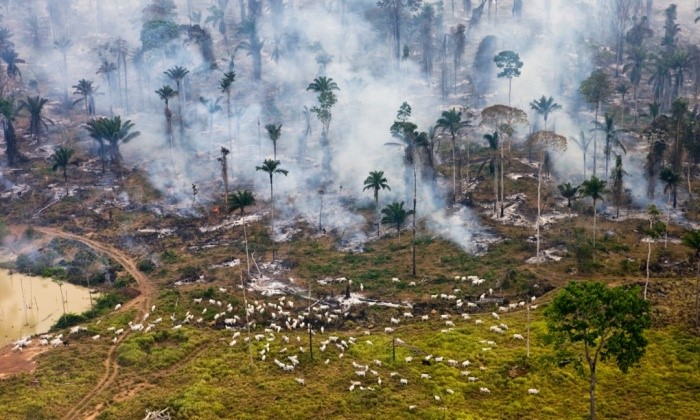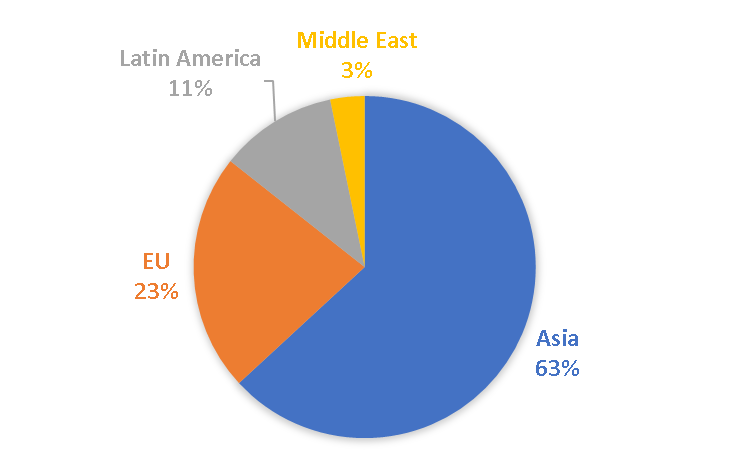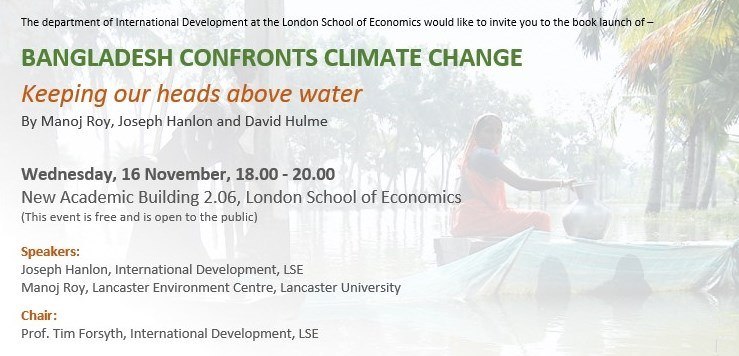MSc Environment and Development graduate, Mariana Granziera, and candidate, Júlia Bussab Fonseca, collaborate to investigate the roots of deforestation in the Amazon and the threats to sovereignty posed by European states.
The recent flames that took over the Brazilian Amazon Rainforest has raised a global awareness over an emergency for a global commitment to halt deforestation in tropical forests. In its current state, the Amazon holds between 10% to 15% of the biodiversity on continental lands, moreover, the Amazon is not an isolated ecosystem, it interacts with other ecological dimensions in order to stabilise the global climate. In other words, the Amazon Rainforest is a crucial ecosystem to the maintenance of key ecological elements that keep the Earth a living place.
It’s clear that deforestation in Brazil is not only a domestic problem. Therefore, although the international community is pointing out fingers to the Bolsonaro’s environmental dismantling, there are powerful international political and economic actors that should not be ignored. The aid package recently announced by the G7 authorities to combat deforestation in the Amazon is welcomed to mitigate the crisis, but it does not solve the problem that is rooted in the inertia of the international commodities’ market to effectively address sustainable development.
What are the roots of the Amazon Rainforest deforestation?
Although Mr. Bolsonaro’s dismantling is undeniably a great reason for the rise of deforestation, Brazilian forests have two other stressors putting pressure on the Brazilian natural resources: large markets of consumers and economically powerful producers.
The majority of deforestation in the Amazon region is associated with commodities production (i.e. soy and beef) driven by the private sector to supply large international markets. Indeed, 71% of the total area cleared in 2019 has happened in private properties. As a matter of fact, the Bolsonaro’s dismantling has empowered Brazilian landowners to irresponsibly convert forest into planted areas and cattle’ herd in order to attend to the interest of large soy and beef consumers’ markets with poor environmental accountability.

A large proportion of the commodities produced in Brazil are exported. According to the Brazilian government agency responsible for agricultural accountability, around 60% of Brazilian soy and 25% of Brazilian beef were exported in June 2019, and a considerable part of this production is rooted in the Amazon Rainforest. Indeed, 35% of the planted area in the Amazon is addressed to soy crop and 40% of the Brazilian beef comes from former Amazon forest converted into pasture fields.
Narrowing down the analysis to the main destinations of these commodities originating from state with the highest deforestation rate in Brazil in 2018 – state of Pará – China led the list followed by the EU. According to the Brazilian Ministry of Development, Industry and Foreign Trade (MDIC), 58% of the soy produced in Pará in 2018 went to China and 22% to Europe. In the same period, according to the Brazilian National Institute for Space Research (INPE) Pará lost 2,744sq meters of forest, 13% more than the year before.

European leaders have threatened to impose trade retaliation against Brazilian commodities, however, even though some sanctions are already taking place, this will not fix the problem of deforestation in Brazil. As long as other considerable markets not require traceability of commodities they consume, trade sanctions from few importers will not lead to stronger environmental protection.
The producers: is European states the main threat over the sovereignty of the Amazon Rainforest?
Although Mr. Bolsonaro has rejected the G7 pledge to combat the flames in the Amazon under the allegation that European aid attacks the Brazilian sovereignty, there is no concrete evidence that European states are the major threat to the Brazilian sovereignty over the Amazon forest.
Data published by Reuters in March 2019, reveals that the leading traders of Brazilian soy, corn and soymeal in 2018 were American corporations, and the major beef producer in the Amazon is the Brazilian company JBS foods, largely involved in corruption scandals. Moreover, the NGO Amazon Watch has published a report stating that American big banks and investors are the main shareholders of the major soy and beef producers in Brazil (including JBS). Additionally, they are bankrolling the implementation of infrastructure projects in the Amazon Rainforest that facilitate the exporting of commodities produced in the region.
Thus, despite the fact that the EU is a large consumer of Brazilian commodities that triggers deforestation, there are other powerful economic actors in place.

Moreover, deforestation and the pressure on the natural resources available in the Amazon rainforest is a problem that involves not only multiple countries, but also multiple stakeholders. Pressuring the Brazilian government is important; however, the international community must hold global companies accountable for their direct and indirect (through their supply chains) roles in deforestation.
What can be done?
We are running out of time to prevent a climate catastrophe and we cannot afford to see the Amazon Rainforest become one of the largest global contributors to climate change. Mr. Bolsonaro, has shown to the world that arguments related to climate change will not convince him to stop deforestation. Therefore, the international community must shift its approach to refrain a climate disaster.
Why is that? The Brazilian President was elected partially because he promised economic growth. Unsurprisingly, the economic agenda has been at the forefront of his government and enforced by powerful economic actors that insist on doing business as usual. Thus, what can effectively detain deforestation in Brazil is the pressure from companies and capital providers involved in the production of commodities in the area.
Given the political and institutional instability in Brazil, global companies must be responsible and accountable for their operations in the country. Furthermore, businesses all over the world must be transparent and prevent that commodities related to deforestation enter their supply chains. The international community should expect this approach not only from European companies, but from every business including North American, Asian and Middle Eastern companies.
Júlia Bussab Fonseca is an MSc candidate Environment and Development at LSE and an Engineer graduated at the University of São Paulo (USP), in Brazil. She has extensive experiences in implementing projects addressed to indigenous communities in the Amazon Rainforest and has a keen interest in international climate change mitigation and adaptation policies (j.bussab-fonseca@lse.ac.uk).
Mariana Granziera – Mariana is analumni from LSE as she holds an MSc degree in Environment and Development. She is currently working as a Senior Consultant at Kumi Consulting where she leads the work in responsible supply chains in the agri-food sector (mariana.granziera@kumi.consulting)
The views expressed in this post are those of the author and in no way reflect those of the International Development LSE blog or the London School of Economics and Political Science.





